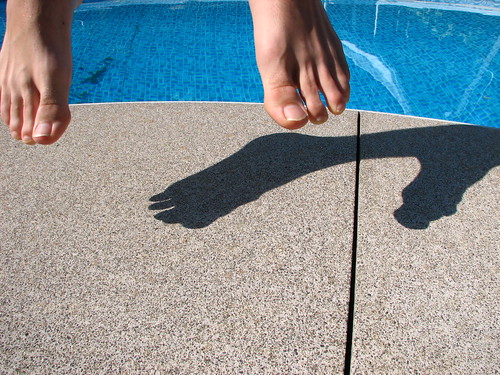 Life on planet earth requires a daily battle against gravity. You are either accelerating the body against it, or decelerating the body to control or diminish its effects. Either way, every motion is a function of mechanical loading.
Life on planet earth requires a daily battle against gravity. You are either accelerating the body against it, or decelerating the body to control or diminish its effects. Either way, every motion is a function of mechanical loading.
If our primary task is to improve human function, then we must strive to understand the dynamics of mechanical loading. By doing so, we can understand the behavior of the human system as it attempts to adapt to the imposed demands of life on the planet.
Meanwhile, in the haste to do their own "testing", clinicians will forget that the patient is performing countless mechanical loading "tests" throughout the day before they ever walk in the door of the clinic.
As a clinician, you cannot deny the importance of mechanical loading as an integral component of human movement. And why would we want to? Mechanical loading is the best assessment tool we have. Here's why.
Clinicians like to separate testing from history, and history from testing. They like to get their hands on the patient to perform any number of tests. I often hear the phrase "it's objective" or "it's more objective than the patient history".
But the patient has all the data we need - or certainly the vast majority of relevant data. They live it daily. In the course of their day, they experience the effects of mechanical loading in all functional activities - in every action they take on the planet.
Life is simply a series of mechanical loading "tests". Your task, as clinician, is to understand the effects of those mechanical loading strategies.
When Robin McKenzie developed the principles underlying Mechanical Diagnosis And Therapy, he proposed the concept of repeated movement testing. This is a structured means of assessing the patient's response (via changes in movement, symptoms, or overall function) to repeated mechanical loading strategies - for any and all musculoskeletal complaints. But perhaps more importantly, he utilized this concept in the subjective history as well. Understanding the responses to daily mechanical loading provides the foundation for further "testing" in the clinic.
In reality, it goes far beyond just repeated movements or a good subjective history.
Every exercise or functional drill that is given to a patient is just another mechanical test that provides another means of data collection. Every exercise is a mechanical loading strategy. We can always assess the effect of the mechanical loading strategy on the baselines of movement, symptoms, and function. And, imagine this, we can provide patients with the necessary framework to understand appropriate and inappropriate responses to mechanical loading - via signs and symptoms that can be self-monitored.
It really doesn't matter what "approach" to care you are using. Keep one simple thing in mind:
“Think mechanically, act globally.”
If you are not fully assessing the patient's responses to mechanical loading, then you are missing one of the most important assessment tools in understanding how a patient functions in a gravity-based existence - during assessment, treatment, and daily life on the planet.
Photo credits: qmnonic
 "Running Injuries: Etiology And Recovery- Based Treatment" (co-author Bridget Clark, PT) appears in the third edition and fourth editions of "Clinical Orthopaedic Rehabilitation: A Team Approach" by Charles Giangarra, MD and Robert C. Manske, PT.
"Running Injuries: Etiology And Recovery- Based Treatment" (co-author Bridget Clark, PT) appears in the third edition and fourth editions of "Clinical Orthopaedic Rehabilitation: A Team Approach" by Charles Giangarra, MD and Robert C. Manske, PT.
 Allan Besselink, PT, DPT, Ph.D., Dip.MDT has a unique voice in the world of sports, education, and health care. Read more about Allan here.
Allan Besselink, PT, DPT, Ph.D., Dip.MDT has a unique voice in the world of sports, education, and health care. Read more about Allan here.
 Top 5 finalist in three categories: "Best Overall Blog", "Best PT Blog" and "Best Advocacy Blog".
Top 5 finalist in three categories: "Best Overall Blog", "Best PT Blog" and "Best Advocacy Blog".